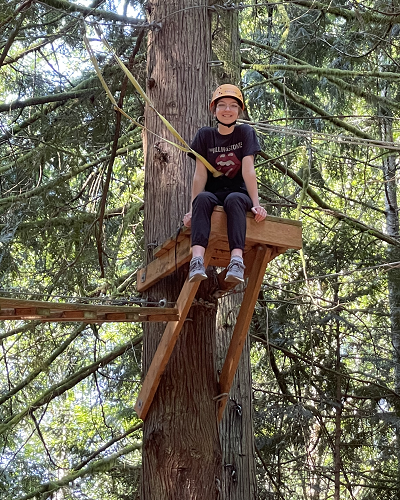The Ultimate Eco-Challenge

U.S. citizens comprise 5% of the world’s population and yet we consume 25% of the world’s resources. Our food travels an average of 3,000 miles to reach our plates, using lots of petroleum in the process. We use an enormous amount of electricity and 70% of it is generated by burning fossil fuels. We travel great distances and almost all of that energy comes from petroleum. Our rates of consumption are so unsustainable that even the next generation will not be able to consume resources like we do today. Our current energy use contributes to Climate Change, but there are other options.
So, what can we DO about this? Is it even possible to live sustainably without going back to the stone age? For this project week, students will experience what life can be like without consuming ANY fossil fuels.
-
All of our electricity for lighting, computers, watching a movie and charging cell phones will be generated with our own bodies on a bicycle powered generator.
-
We will buy locally grown food from a farmer’s market, tour an organic farm and work on the farm for an afternoon.
-
We will tour the Wild Horse Wind and Solar electricity generation facility in Ellensburg.
-
We will stay the night at my cabin in the mountains outside of Leavenworth. This small cabin is off the electric grid and is powered by solar panels. We will split wood to heat the cabin and cook dinner on the wood burning stove.
-
We will explore electric cars by visiting a Nissan dealer to check out the Nissan Leaf and also visit the Tesla dealer.
-
When possible, we will ride bikes for transportation. We will use biodiesel in our bus when we travel to eastern Washington.
-
Students will do an energy audit on their homes and learn how to design and size a PV system that would generate their homes' electricity from the sun.
-
We will tour my house that was designed to be a net-zero energy home. We will learn how you can decrease home energy consumption by 80% so that all of the energy used in the house can easily be generated by solar panels, even in the rainy Pacific NW. Enough electricity generation is left over to power an electric car for 15,000 miles per year.
Project Week (2024-25)
Mar 24, 2025 - Mar 28, 2025



